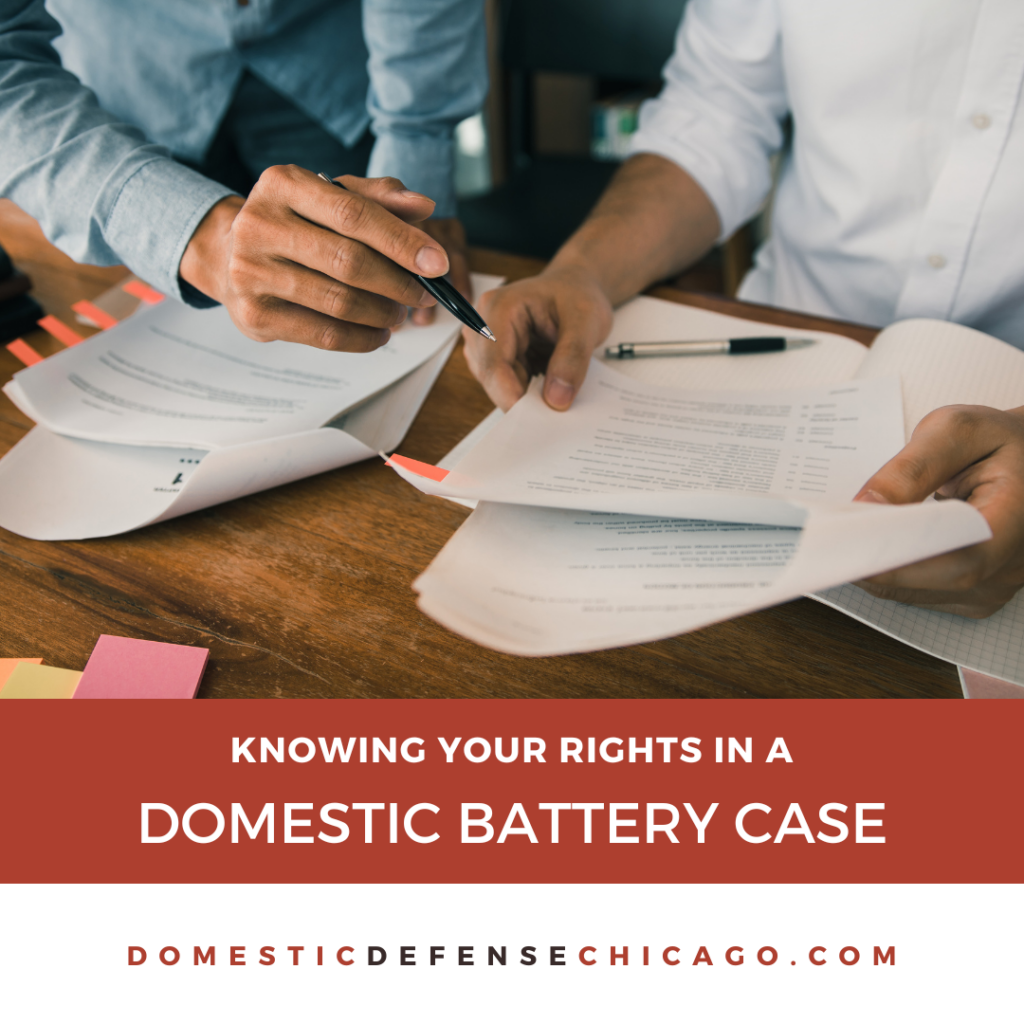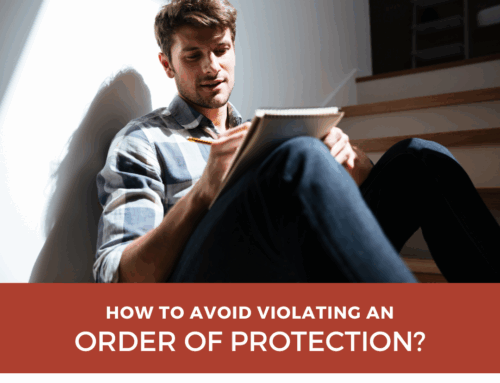Facing domestic battery charges in Chicago can be overwhelming. However, understanding your rights and the legal process can make the journey smoother. If you find yourself in this situation, it’s essential to have an attorney with experience and knowledge by your side.
Navigating Domestic Battery Charges: Know Your Rights in Chicago
This guide explains the following:
- Understanding the charges
- The role of protective orders
- The importance of legal representation
- Potential defenses and strategies
- Consequences and penalties
Here’s a closer look at each.
Understanding the Charges
Domestic battery in Illinois is defined as causing bodily harm or making physical contact of an insulting or provoking nature with a family member. These can include spouses, former spouses, parents, children, stepchildren, or others living in the same household. Knowing the specifics of your charge can help shape your defense.
The Role of Protective Orders
Often, after a domestic battery charge, the court may issue a protective order. This order may prohibit you from contacting or being near the accuser. It’s vital to fully understand the terms of any protective order and adhere to them, as violating these can lead to additional charges.
The Importance of Legal Representation
It’s crucial to hire an attorney who’s familiar with Chicago’s domestic battery laws. They’ll guide you through the process, from arraignments to potential trials, ensuring your rights are protected every step of the way.
Potential Defenses and Strategies
Every case is unique, and a seasoned attorney can help identify the best defense strategy for your situation. Some common defenses include self-defense, defense of property, or even consent in some scenarios.
Consequences and Penalties
In Illinois, domestic battery charges can vary in severity. They might be classified as a misdemeanor or a felony, depending on the circumstances. Penalties can range from probation and counseling to jail time. Understanding potential consequences can help you prepare for what lies ahead.
FAQ About Navigating Domestic Battery Charges
What Constitutes Domestic Battery in Chicago?
Essentially, domestic battery occurs when one individual either intentionally or knowingly causes bodily harm or establishes physical contact in an insulting or provoking manner with a family or household member. This definition isn’t just limited to spouses or romantic partners. It includes parents, siblings, children, step-relatives, roommates, and even those who formerly shared a household. While the term “insulting or provoking contact” might seem vague, it typically pertains to actions that might not cause physical pain but can be demeaning, such as a slap or spitting.
How Does a Protective Order Affect Me?
Being served with a protective order can feel like a massive blow to your personal freedom. Often issued during domestic disputes, these orders are designed to protect alleged victims from further harm or contact. Here’s how it might impact you:
- Restricted Contact: The primary purpose of most protective orders is to prevent you from making any contact with the accuser. This includes physical, verbal, and even electronic communications like texts or social media messages.
- Restricted Movement: You might be prohibited from visiting certain locations, especially places frequently visited by the accuser, such as their home, workplace, or school.
- Child Visitation: If children are involved, the protective order may temporarily modify or even suspend visitation rights.
- Firearm Restrictions: Often, protective orders can require you to surrender any firearms you possess.
- Living Situation: In some cases, you might have to vacate a shared residence.
Remember, violating any term of the order can result in additional charges. It’s paramount to understand every stipulation and adhere to it.
Can I Fight a Domestic Battery Charge?
Absolutely. Everyone has the right to defend themselves against accusations. If charged with domestic battery, you’ll need a robust defense strategy, which might involve:
- Challenging the credibility of the accuser or witnesses.
- Providing evidence, such as text messages, photos, or surveillance footage.
- Showcasing your character through character references or past behavior.
- Introducing an alibi, if applicable. Your attorney’s knowledge and experience will be pivotal in crafting the best defense based on your specific circumstances.
What’s the Difference Between a Misdemeanor and a Felony Charge?
Both misdemeanors and felonies are criminal charges, but they differ primarily in the severity of the crime and, consequently, the potential punishments.
- Misdemeanor: This is the lesser of the two charges. While serious, misdemeanors usually come with lighter penalties. If convicted, you might face probation, counseling, community service, fines, or shorter jail terms. In Illinois, misdemeanors are categorized into classes (Class A, B, and C) with Class A being the most serious.
- Felony: A more grave charge, felonies encompass crimes that are deemed particularly harmful or dangerous. The penalties are more severe and can include longer imprisonment periods, hefty fines, and more stringent probation terms. Just like misdemeanors, felonies are also categorized, but into five classes (Class 1 through 4 and Class X), with Class X being the most severe.
Are There Alternatives to Jail Time?
Fortunately, jail isn’t always the automatic outcome. Depending on the circumstances of the case, its severity, and your past record, there are several alternatives:
- Probation: A period where you’re under supervision instead of incarceration. You must meet specific conditions, such as attending counseling or regularly checking in with a probation officer.
- Counseling or Therapy: Particularly in domestic battery cases, the court might mandate anger management or relationship counseling.
- Community Service: You could be required to complete a set number of hours doing unpaid work that benefits the community.
- Restitution: If the victim suffered financial losses due to the incident, you might be ordered to compensate them.
Your attorney will often negotiate for these alternatives, especially if it’s your first offense or if there were mitigating circumstances.
Understanding your rights and the legal landscape is crucial when navigating domestic battery charges in Chicago. With the right information and the help of an experienced attorney, you can work toward the best possible outcome for your situation.
Do You Need to Talk to an Attorney About Domestic Battery Defense?
If you need to talk to a domestic battery defense attorney in Illinois, we’re here to help. Call us at 847-920-4540 now – we’ll be happy to give you a free consultation and talk to you about your options.







Leave A Comment
You must be logged in to post a comment.